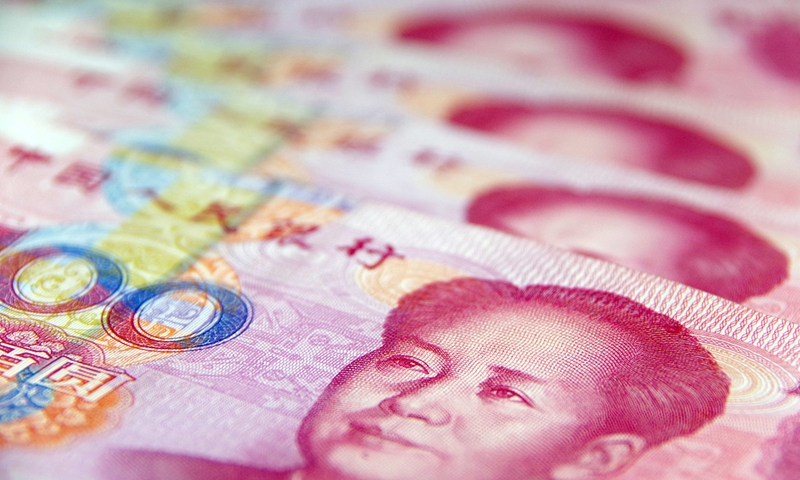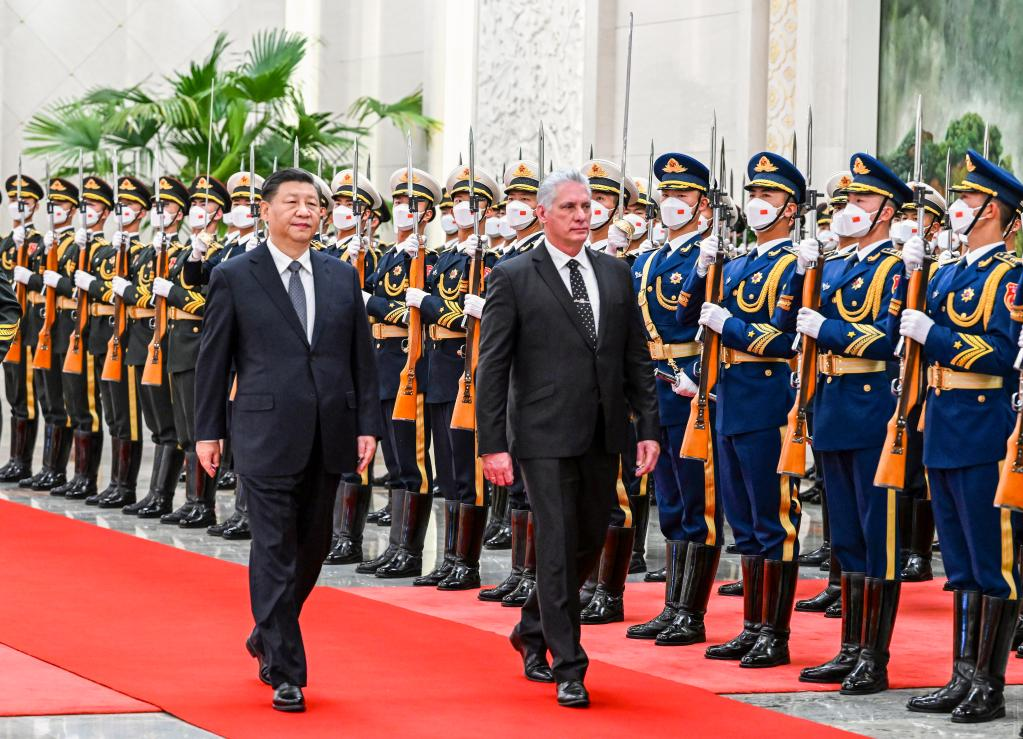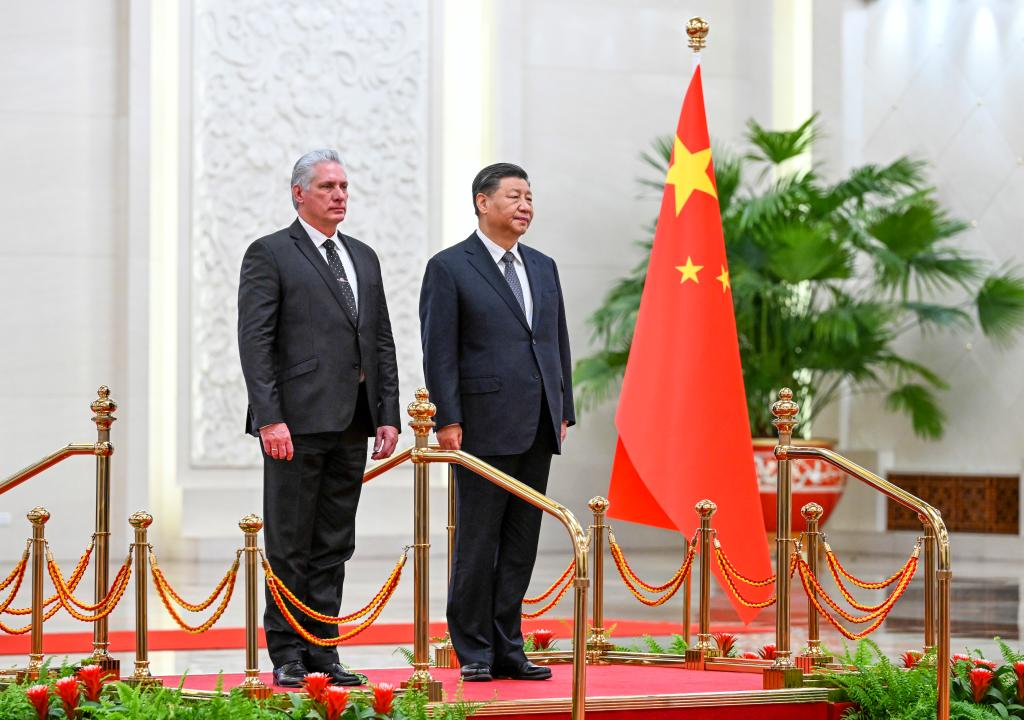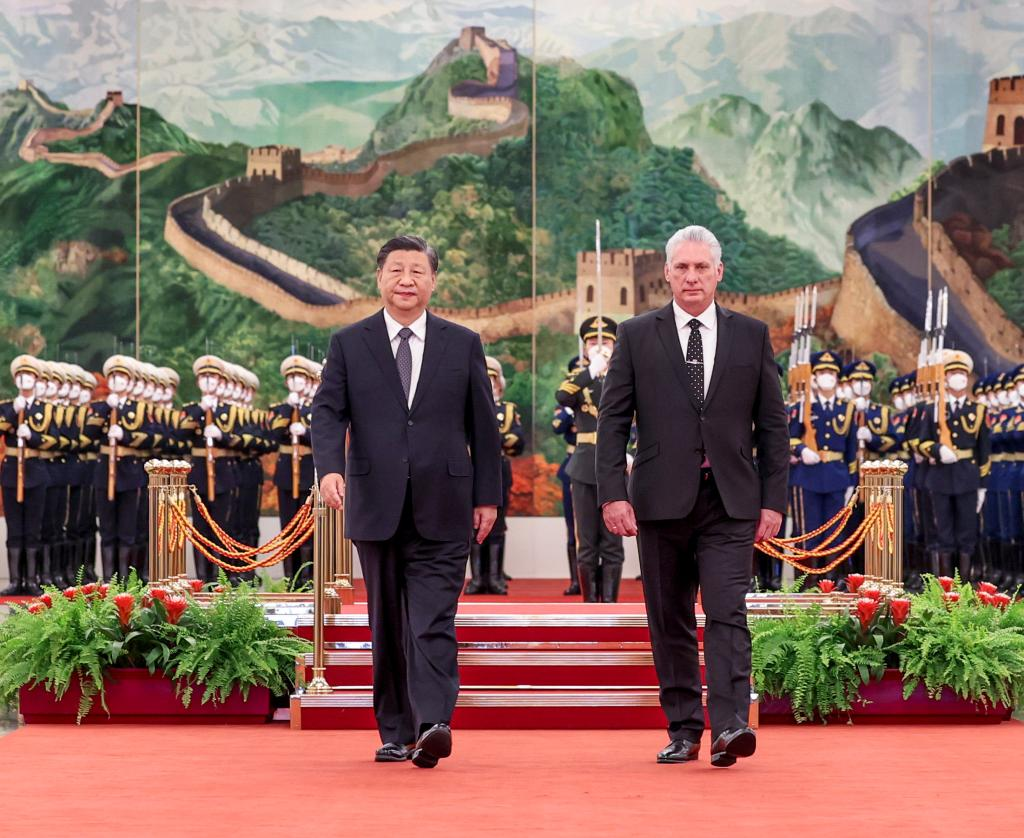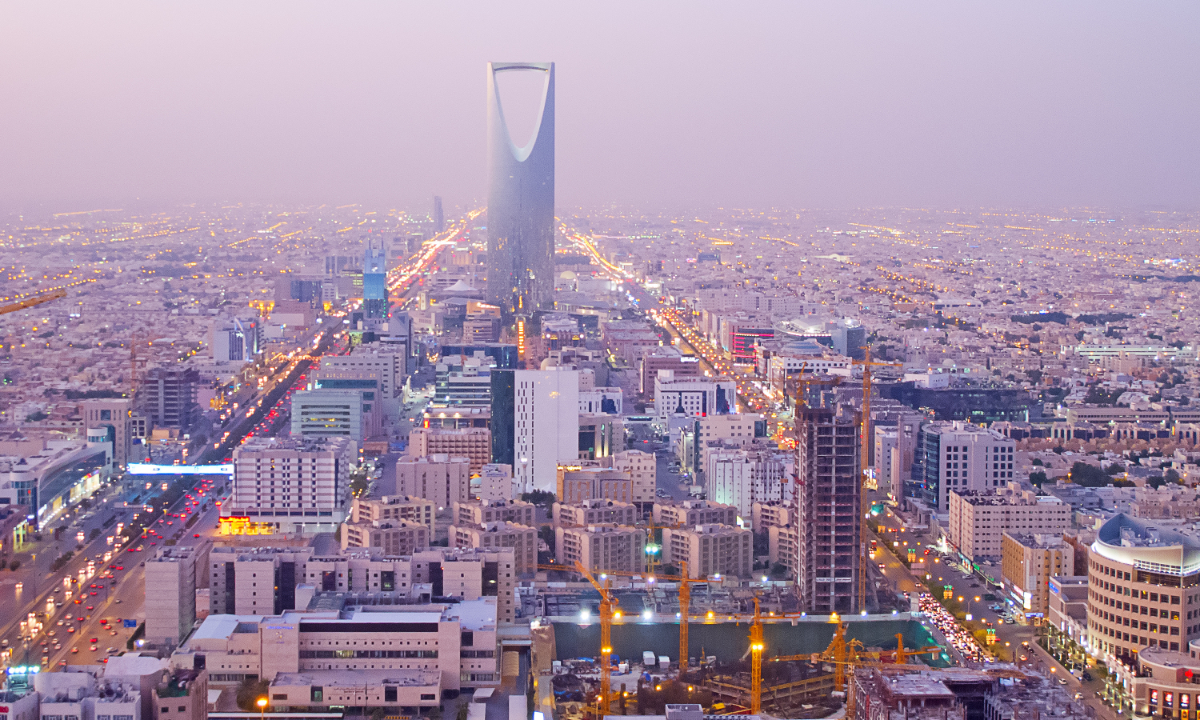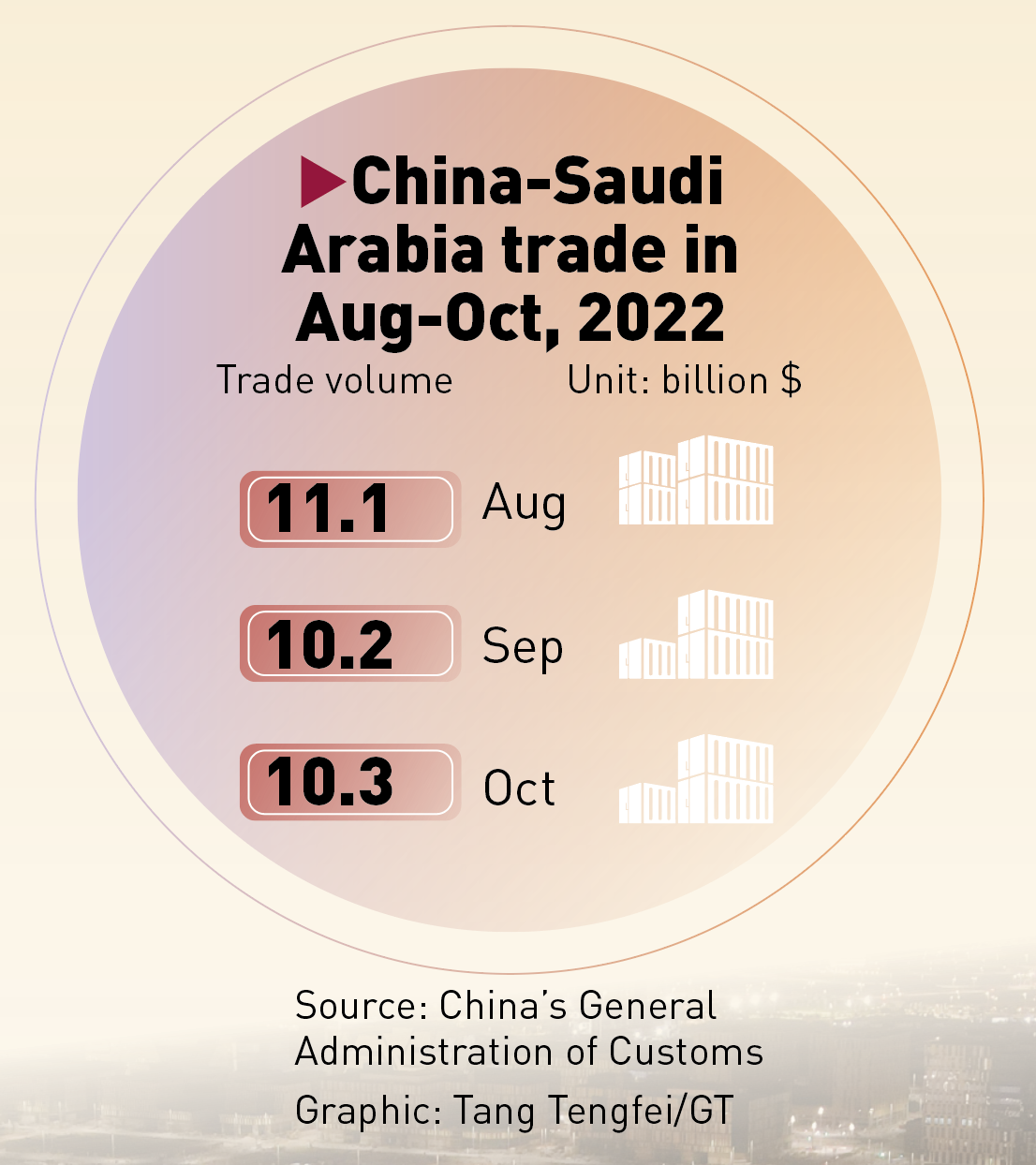As BRI integrates with Saudi Vision 2030, Chinese firms expect a new peak in cooperation following Xi’s visit
Chinese firms aim at grasping opportunities by better integrating BRI, Saudi Vision 2030
By
and Xing Xiaojing in Riyadh Published: Dec 08, 2022 12:30 AM Updated: Dec 08, 2022 12:26 AM
Riyadh, capital of Saudi Arabia Photo: VCG
Projects involving Chinese enterprises are seen in Saudi Arabia and across the Middle East. From the Mecca light rail in the kingdom to the magnificent Lusail Stadium, which is now the center of global attention as a venue of the ongoing 2022 FIFA World Cup in Qatar, these iconic projects are a microcosm of the involvement of Chinese companies in the region. As Chinese President Xi Jinping is going to attend the first China-Arab States Summit and the China-GCC Summit in Riyadh and pay a state visit to Saudi Arabia from Wednesday to Saturday, the demonstration effect of Chinese enterprises will surely radiate to the entire Arab world.
Chinese Foreign Ministry spokesperson Mao Ning said on Wednesday that China and Saudi Arabia are comprehensive strategic partners, with shared focuses in our development strategies, similar visions for development and mutually complementary development strengths, which makes two countries natural cooperation partners. Mao added that President Xi's state visit to Saudi Arabia will be his first visit to a Middle East country after the successful 20th CPC National Congress, and will elevate the China-Saudi Arabia comprehensive strategic partnership to a higher level.
Fruitful results under BRI
Since 2010, the Mecca light rail, constructed by China Railway Construction Corp (CRCC), has provided pilgrimage transport service to hundreds of thousands or even millions of pilgrims every year, facilitating their pilgrimage to Mecca in Saudi Arabia, and greatly easing traffic congestion on the roads during the Hajj. The light rail line, which extends for 18.25 kilometers and includes nine stations, is Saudi Arabia's first light rail and the first of its kind built by a Chinese company in the Middle East.
Wang Lei, general manager of CRCC (Saudi Arabia), told the Global Times that it only took 16 months to complete the rail project and since it was put into service in 2010, it has successfully completed eight missions and carried a total of more than 20 million pilgrims.
Energy cooperation between China and Saudi Arabia is also advancing steadily. When President Xi visited Saudi Arabia nearly seven years ago in 2016, he and Saudi King Salman bin Abdulaziz Al Saud attended the launching ceremony of the project of Yanbu Aramco Sinopec Refining Co (YASREF), jointly established by China Petrochemical Corp (Sinopec) and Saudi Aramco.
Lian Mingxiang, general manager of Sinopec's Middle East branch and head of the Contact Office of Chinese Companies in the Kingdom of Saudi Arabia, told the Global Times that the YASREF refinery as a joint venture has witnessed pleasant and smooth cooperation between Sinopec and Saudi Aramco. He expects Xi's visit this time will further strengthen political relations between the two countries, so as to better promote bilateral economic and trade exchanges.
Sinopec in August signed a memorandum of understanding with Saudi Aramco covering multiple areas of potential collaboration between the parties in Saudi Arabia. According to Aramco, Mohammed Y. Al Qahtani, Aramco senior vice president of downstream, believed the collaboration would help to further advance the Saudi oil company's strategic relationship with Sinopec into key areas of mutual benefit within the Kingdom. Lian said that Sinopec and Saudi Aramco are exploring the cooperation model of integrating the upstream, midstream and downstream.
"Saudi Arabia needs a stable demand for oil while China needs a stable oil supply as the Chinese economy keeps developing, therefore, strengthening energy cooperation is of great importance to China and Saudi Arabia, whether it's from the perspective of supply and demand or each country's own development.
Cooperation with Chinese companies is also flourishing in the Middle East region outside Saudi Arabia. Lusail Stadium, which is set to host the most important final match of the 2022 FIFA World Cup, was constructed by the CRCC together with Qatari company HBK Contracting in a joint venture. It's another symbolic project of Belt and Road cooperation. The biggest stadium in Qatar is featured on the country's 10-riyal ($2.66) banknotes. It's fair to say through in-depth integration with local needs, the Belt and Road Initiative has continuously borne fruit in various fields.
Popularity of Chinese firms
Regarding oil trade and the Chinese presence in Saudi Arabia, some Western countries tend to make political interpretations, portraying China's economic activities as an attempt to vie for influence with the US in the region. "Western media reports often deliberately distort facts for certain political purposes," Lian said. He emphasized that there is only normal economic and trade cooperation, which has nothing to do with politics in the process of doing business with Saudi partners. "Not only Chinese and US companies, but also firms from Japan, South Korea and other countries come to Saudi Arabia to fully compete in the market, giving full play to their respective advantages," Lian said.
As a matter of fact, Chinese enterprises have received a warm welcome from local people. Meshari Abahusain, a Saudi Arabian who is working as investment director of Saudi Silk Road Industrial Services LLC, a Chinese-Saudi joint venture that provides investment services in Saudi Arabia, told the Global Times that he is expecting President Xi's visit will be followed by more diverse investments from China.
"I have been waiting for this moment so long, I remember the last time when President Xi came [in 2016], we got a lot of business opportunities," he said. Saudi Arabia has set a target of attracting around $100 billion a year of foreign direct investment by 2030 as it looks to diversify its economy.
"This offers a golden chance for Chinese investors and companies," Abahusain noted. He also believes that with the smooth development of China-Saudi Arabia relations and the realization of mutual benefit and reciprocity between the two countries, bilateral ties will have a demonstration effect on other Arab countries.
Graphic: Tang Tengfei/GT
Compared with companies from other countries, Chinese enterprises have obvious advantages in the Middle East. Wang said the biggest advantage of Chinese enterprises lies in their good reputation in the global market. Local people acknowledged that once an agreement is reached and a contract is signed, Chinese companies will show a strong capacity to fulfill the contract, Wang noted. He also added that Chinese companies attach great importance to cultivating local talent.
"We must show respect for local people's religious beliefs and customs," Lian stressed when talking about communication skills with the Saudi side. He noted that it's basic to set up prayer sites for local employees regardless of the size of the project and whether it's in offices or open-air construction sites. "Equal dialogue is very important, and there are a lot of good points that Chinese firms could learn from their Saudi partners," Lian said.
New peak for win-win cooperation
In recent years, Saudi Arabia has vigorously promoted economic diversification and transformation under the framework of Saudi Vision 2030. Wang told the Global Times that frequent high-level interactions between China and Saudi Arabia have strengthened the mutual trust between the two countries and could help Chinese firms to participate in local projects more smoothly. He expects the two governments could reach more cooperation intentions during Xi's visit, especially in areas such as smart city construction, green energy, energy conservation and environmental protection, in which Chinese enterprises are greatly interested.
Lian said he is very confident in the bright prospects of Chinese enterprises in Saudi Arabia. The Saudi Vision 2030 pays attention to the development of the industrial and manufacturing sectors, where Chinese enterprises have advantages. In the future, the Chinese companies need to clearly understand where their advantages are, accurately analyze local demand, and grasp the opportunities by better integrating the Belt and Road Initiative and the Saudi Vision 2030.
After President Xi visited Saudi Arabia in 2016, economic and trade cooperation between the two countries witnessed a series of major results. Lian believes Xi's visit this time will bring about a new peak in bilateral economic and trade exchanges, and point out the direction for the two countries to deepen cooperation in the future.
